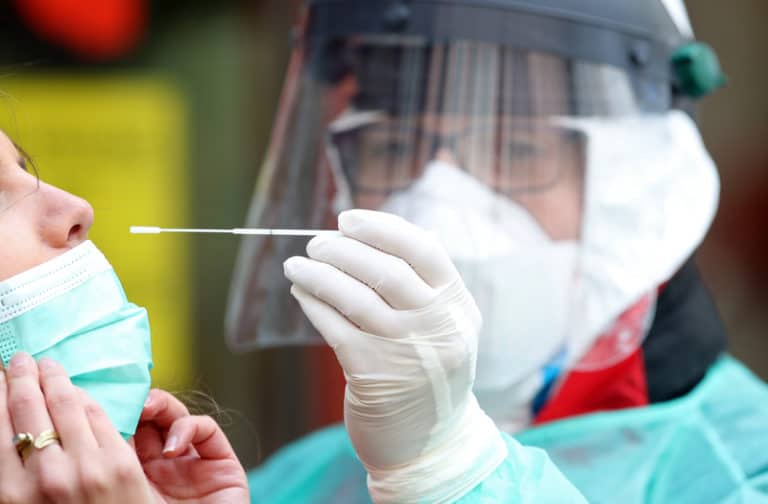Are Cotton Swab PCR Tests Secretly Injecting Vaccines to Combat “Vaccine Hesitancy”?
Concern is growing that an innovative nanotech device developed at Johns Hopkins University may be used to secretly deliver the COVID19 vaccine to those people who are “vaccine hesitant.” Certainly, the technology is real, but is their any merit to such a claim? Patrick Smith (November 25, 2020) writing for hub.jhu.edu explains: "Inspired by a parasitic worm that digs its sharp teeth into its host’s intestines, Johns Hopkins researchers have designed tiny, star-shaped microdevices that can latch onto intestinal mucosa and release drugs into the body." Called “theragrippers” these tiny devices are made of metal and a thin, shape-changing film. They are coated in heat-sensitive paraffin wax and each is no bigger than a speck of dust. Even the inventors of this microtechnology admit it can potentially transport any drug and release it gradually into your body and you won’t even know anything about it. What reason would there be to engage in mass deception to secretly deliver a vaccine to defeat the coronavirus pandemic? Surveys have been revealing a marked drop in public confidence that vaccines are really worth the risk. In 2019, the World Health Organization listed vaccine hesitancy as a top ten threat to global health. Only half of surveyed American adults would receive a coronavirus vaccine if it were available today. That number is down precipitously from over 70 percent since May 2020. But all such reluctance against the COVID jab will be in vain if a vaccine can be delivered by stealth merely when anyone takes the now ubiquitous PCR swab test. The claim is that the dust-sized “theragrippers” can be implanted in the tips of PCR test swabs and be delivered to the innocent ”victim.”




